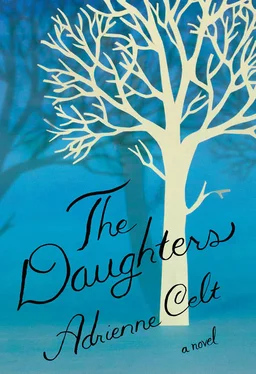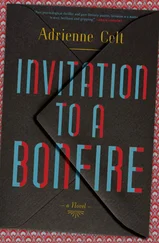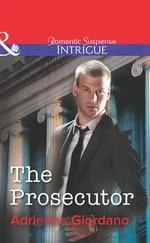We took the O’Hare line to the Loop, then transferred to get to Washington and Wells — it was a long ride, but to us each train was a royal carriage. My mother and I pointed out all the special touches that had been left inside for us: the clean blue pair of seats in a beam of sun, the advertisements for a local jeweler showing pictures of a diamond-studded necklace and bracelet. We might consider getting our tiaras refitted there, we said. If the store had sufficient dignity upon inspection. The other passengers received our scrutinizing attention as well: there was the café owner who’d refused to sell us hot chocolate because the gold coin we’d found to pay with was dirty. Beside her, the spoiled twin girls we always saw in the park whose dresses and hair ribbons threw us into fits of jealousy, which we quelled thanks to our superior breeding.
A blind man with a cane and a threadbare hat sat in the handicapped seats a few feet away from us, and he rocked with the rhythm of the train, singing softly to himself.
“That,” Sara whispered to me, taking off her gloves, “is the royal madrigal. He recognized us for what we were long before anyone else, but he couldn’t tell us for fear of retribution from the evil queen. She wanted to keep us poor and wretched. But she couldn’t fool the madrigal: he sensed our greatness through the sound of our voices. He can tell a prince from a hog farmer by hearing them speak a single word.”
We were quiet, listening to the madrigal sing. He changed tunes after a minute or so, and my mother tilted her head to the side so her long hair fell away from the ear that faced him.
“Well, of course he’d want to honor us with a song.” She raised her eyebrows at me gravely. “Shouldn’t we honor him back?” My mother could be as great as I wanted her to be, sometimes. When she wanted it too.
I nodded, and she put a finger to her lips. Hush . She walked over to where the man sat and placed herself beside him while I watched. Silently. Hushed. At first I couldn’t distinguish the sounds she was making from the man’s singing, so low were the notes and so well intertwined with the music that was already in the air. But as the man raised his voice my mother made hers more audible, and they began to play together: his legato with her crisp stutters, his baritone with her alto-soprano.
The song was sad, but somehow between them it sounded triumphant. Like they’d found one another after a long search. Ended a long loneliness. She bobbed her head as they tossed lines back and forth, trading phrases from “Body and Soul.” I leaned my chin against the cold metal headrest on the back of my seat and watched. The grinding of the train against the tracks rumbled against my jaw as my mother and the man spun the air into an earthy, rasping exultation. They were harmonizing now, and my mother put her clean, beautiful hand on the man’s, which was thick with calluses. I loved her then.
Together, they sang about the spirit and the flesh. Together, until they ran out of words.
As the train pulled up to Washington and Wells they hummed a few last bars, until the conductor made a scratchy announcement, breaking the spell. I held my mother’s hand and we hopped off onto the wooden platform. The blind man stayed where he was and smiled.
I almost broke into a run towards the front entrance of the Civic Opera House, home of the Chicago Lyric Opera, but my mother snagged the back collar of my dress and pulled me around the building. We approached a side entrance where a man stood smoking in a tuxedo and tails. My mother nudged me.
“ The gatekeeper ,” she whispered. I had the tickets.
“Hello,” I said to the man. He peered at me through a cloud of smoke that he puffed in and out of his mouth without removing the cigarette. Then he turned to Sara.
“You Jimmy’s friend?”
My mother nodded and I silently offered up the tickets in my palm. They were delicate slips of paper with careful calligraphy, unlike any theater stubs I’d seen before. The smoking man picked them up and inspected them, smirking.
“This all seems to be in order,” he said. With the gesture of a ringmaster, he extended his arm towards the door, then opened it just slightly so we would have to slip inside. I looked hesitantly at the tickets.
“Are you just going to keep them?” I asked.
I wanted to pin them to the wall beside my bed and teach myself how to write my name in similar sweeps and flourishes. I’d expected an usher to glance at them and hand them back, maybe adding a minuscule tear. But the man in the tuxedo had other plans.
“How right you are,” he said, and removed a lighter from the inside pocket of his jacket. The paper was extremely thin; they were gone almost as soon as the flint in the lighter struck metal.
“Come on, Lulu.” My mother pulled me through the slender entrance by my elbow.
“Oh, Lulu .” The man stayed outside and laughed. “This is the famous little Lulu. Well, it is an honor.” If he said anything else it was lost to me behind the steely slam of the door.
Inside we wound down a series of dark hallways before emerging in the empty lobby. We wove through the columns, clattering against the marble floor, and Sara explained to me that it’s the gatekeeper’s job to make your passage more difficult, so I shouldn’t be offended.
“Nothing worth doing should be easy.” She scanned the room for a sign that would point us to our seats, though I realized that without the tickets I had no idea what to even look for. “And nowhere worth going should be easy to get to.”
“Why is everything weird?” I asked. “Where is everybody? Baba took me to the opera before.”
My mother saw someone lean out a doorway and wave to us a level above our heads. She put her hand on my shoulder.
“Not like this,” she said.
We walked out onto the first balcony, and the same woman motioned us towards the front. She was wearing a black gown, waves of loose fabric hanging off her arms like wisps of smoke. When she saw me, she put her hands over her mouth and giggled.
“Oh.” She stifled the laughter but still seemed electric and intense. “She is a young one. You’re sure about this?”
I mustered all my royal pride and raised an eyebrow at her.
“Who are you ?”
She drew herself up. Her eye makeup was also black, and with a shadow across her face it looked almost as if she had no eyes at all.
“I’m Lulu,” she said.
I sucked in a little surprised air, but kept myself together and held out my hand.
“Me too.”
After making introductions, the adult Lulu led us to our seats: dead center, front row, so we could lean against the railing and see the entire stage below us. When I looked down I noticed that the ground floor was completely empty — after glancing around, it was clear that only a few other chairs in the audience were occupied, and no one was sitting near anyone else. Before I could ask Lulu about this, however, she disappeared out the door.
Sitting in the Civic theater is like sitting in a mouth full of gold teeth, red velvet tongues periodically unfurling into aisles. Though the theater was not bright, an occasional patch of warm light glimmered off the embellishments on the walls and hung around me like hot breath. I felt the theater’s mouth yawning out from the stage and leaned into it. I wanted to throw myself down the room’s golden throat.
Beside me my mother peeled off all her outer layers and laid them on the unoccupied velveteen chair next to her, tucking her gloves into the pockets of her coat. She smoothed her dress out: red, square at the neck so her collarbones emerged gracefully and created chasms whenever she swiveled her head. I had no idea what our “tickets” must have cost, the favors my mother would have had to call in to procure them— Jimmy’s friend , the man at the door called her. The house wasn’t full, but the audience, apparently, was selective. She scratched the back of my hand lightly, and I let her weave her fingers through mine. But I didn’t look up at her. The bells sounded and the remaining lights went down. Even in pitch-blackness my eyes didn’t leave the stage. My mother was magical, but this was more.
Читать дальше












